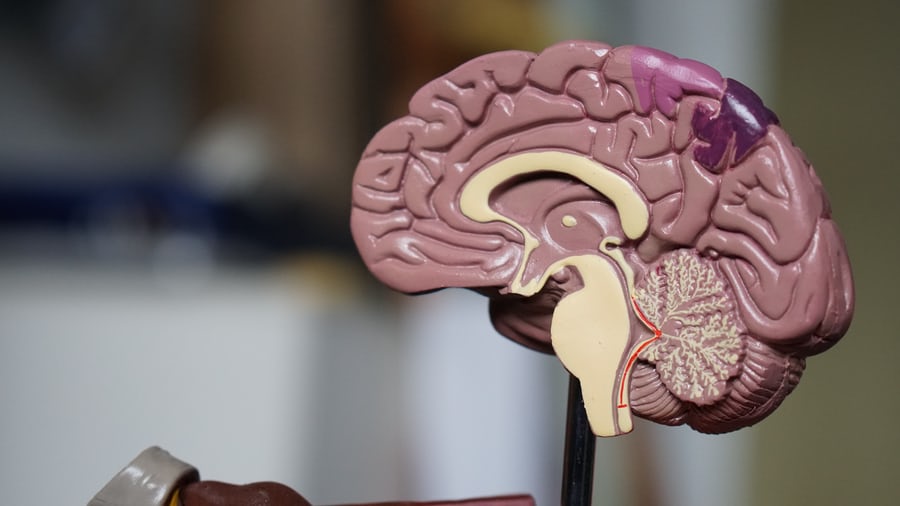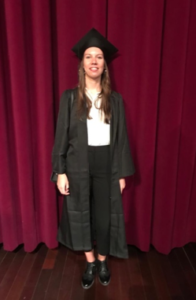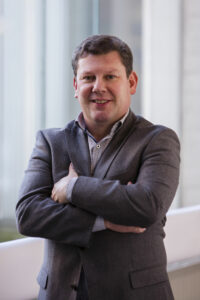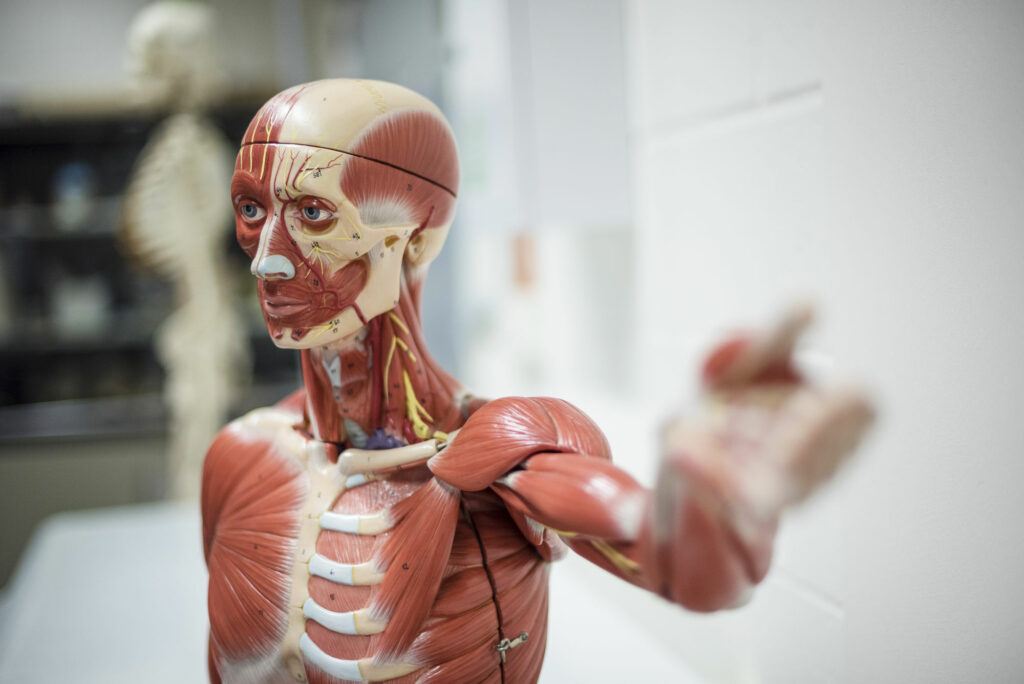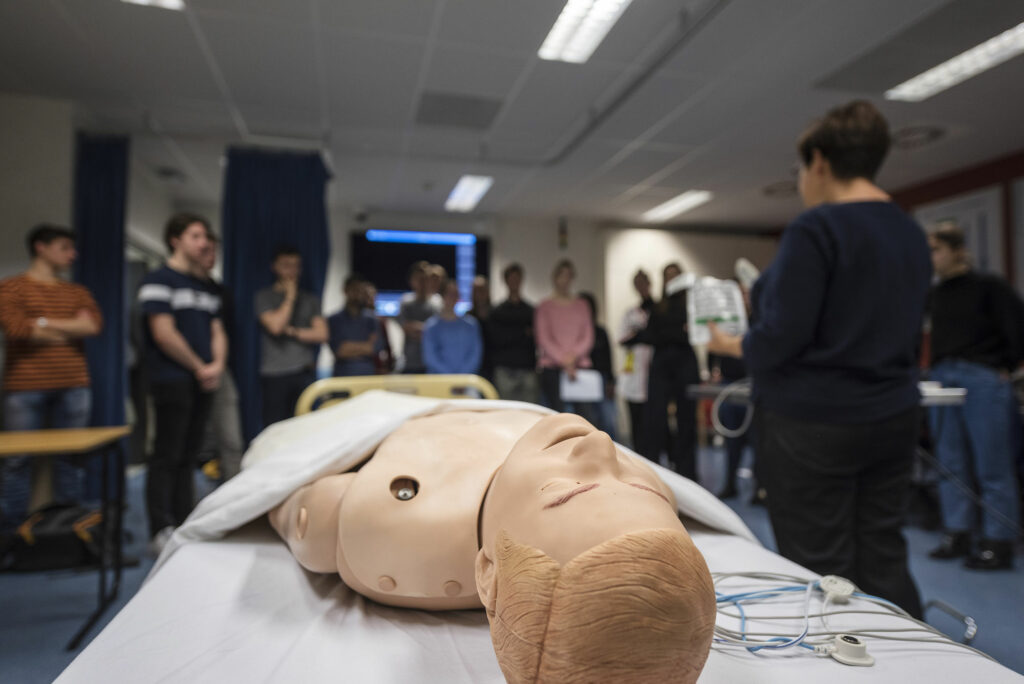
I’m Eva Wachtelaer. Since primary school, I knew that I wanted to learn all about the human body. However, choosing between studying Biomedical Sciences or Medical School after secondary school wasn’t an easy choice for me. Unfortunately, I did not pass the Medical School admissions examination, and thus this decision was made for me.
I enthusiastically started studying Biomedical Sciences at UAntwerp and I quickly discovered that the curriculum perfectly matched my interests. I learned about the human body, both on a macroscopic and on a microscopic level, and really enjoyed classes such as anatomy, immunology, pharmacology and pathology. I rapidly gained an enormous amount of knowledge and had the opportunity to do internships in labs.
What I also loved about Biomedical Sciences were the classes that covered topics in great detail and enabled me to truly understand physiological and pathophysiological mechanisms. For example, histology, molecular & cellular sciences, embryology, and metabolic pathways.
At the end of my first Bachelor year of Biomedical Sciences, I felt that I had gained a tremendous amount of knowledge and felt better prepared to re-take the entrance examination for Medical School. So, in my second Bachelor year I re-sat the Medical School entrance examination. I wanted to prove to myself that I could pass this examination. Well, I passed!
I got into Medical School, but now what?
Although I was very happy about my entrance exam results, I now had to make a difficult decision again. Would I continue on with Biomedical Sciences and start the Master’s program, or would I start Medical School? As I was only one year away from achieving my Bachelor’s degree, I postponed making this decision with one year. Two things happened during that third year that made choosing between the two even harder. First, I found out that one of the Master’s programs of Biomedical Sciences was specifically focussed on neurosciences. I was very enthusiastic about this program, as I had been interested in the brain since secondary school and really enjoyed the neuroscience classes during my Bachelor years. Also, I did my Bachelor’s thesis internship in a neuroscience laboratory, and I was fascinated by the research.
During this internship, I became more familiar with the clinical side of research. My mentor, Prof. Dr. Sebastiaan Engelborghs, is a neurologist specialized in Alzheimer’s disease. He gave me the opportunity to, next to my work in the lab, also join him on patient consultations. This made me realize how much I enjoyed being in contact with patients and to be able to put medications and techniques, developed in the laboratory, into practice. Prof. Dr. Sebastiaan Engelborghs, also showed that it is possible to combine working in a laboratory and being a clinician. To me, this seemed like the perfect combination between clinical work and research.
Talk to professionals who can help you decide
After this internship, I was still left with many questions. I wondered whether it would be more interesting to start Medical School after my Bachelor or Master, whether I wasn’t too old to start another degree and what the chances were to be able to make the combination later during my career. As I couldn’t answer these questions myself, I decided to talk this over with my mentor, Prof. Dr. Sebastiaan Engelborghs. He explained that achieving a Master’s degree in Biomedical Sciences would definitely have additional value for entering into Medical School. He also explained that neurologists and psychiatrists are often involved in research. Finally, he told me that I was definitely not too old. There are often mature students that start a medical degree.
Thus, I decided to continue my Biomedical Sciences degree programme and to start the Master in neurosciences. I conducted my Master’s thesis at McGill University in Canada with Prof. Dr. Pedro Rosa-Neto, a neurologist specialised in Alzheimer’s disease. He leads the McGill University Research Centre for Studies in Aging (MCSA), a lab that uses PET and MRI techniques to study Alzheimer’s disease. Prof. Rosa-Neto is a very passionate mentor who gave me lots of opportunities. He let me choose my thesis topic and helped me combine my interests in science and clinical practice. I worked with several MRI-processing techniques to investigate the relationship between brain iron levels in healthy people and Alzheimer’s disease patients. I also had the opportunity to attend the Alzheimer’s Association International Conference (AAIC) in Los Angeles, USA, where I presented my thesis work.
First day of Medical School!
I started Medical School in September 2019. As I was already a Biomedical Sciences graduate, there were certain classes that I didn’t need to do, and so I combined the first two years of Medical School during my first year. Although I was nervous during the first days of Medical School, it felt really different than my first days of being a Biomedical Sciences undergraduate. All the training and knowledge that I had acquired during my Biomedical Sciences degree really helped me to get a head start and I felt well-prepared for Medical School.
The Medical School curriculum suited my interests perfectly. Many courses were similar to the Biomedical Sciences courses, but there was more emphasis on clinical applications. The communication and practical classes were quite different to the ones in Biomedical Sciences. The communication course included interactive classes that focused on improving the communication skills between medical students and patients. I found this a very valuable and interesting course, which was not part of the Biomedical Sciences curriculum. During the practical classes, various clinical techniques were taught, such as drawing of blood, CPR and physical examinations of the heart and lungs. I really enjoyed learning these new clinical techniques.
Looking back, I would not change anything to the choices that I made. I’ve learned so many interesting concepts in Biomedical Sciences, developed many new skills and had amazing research opportunities and mentors. I am also very happy about starting Medical School, as I can now focus more on the clinical aspects.
Sometimes entry into Medical School is not a straightforward path. For me, first doing a Biomedical Sciences degree and then going into Medical School was the best decision I could have ever made. It will enable me reach my dream job: being a clinician and caring for patients, while also being actively involved in research.
Article written by Eva Wachtelaer. Student Editor: Jolien Hendrix. Editor: Dr. Bronwen Martin

